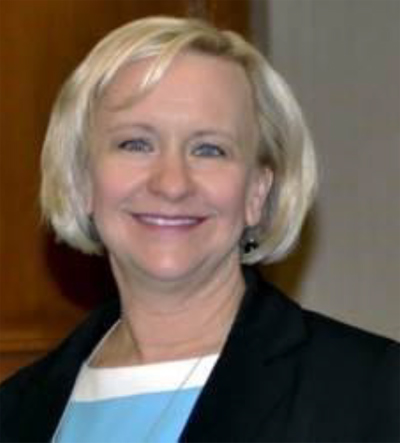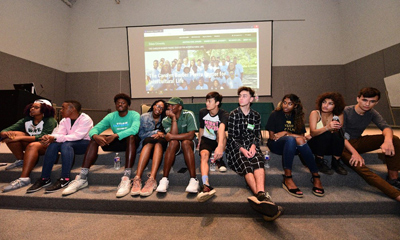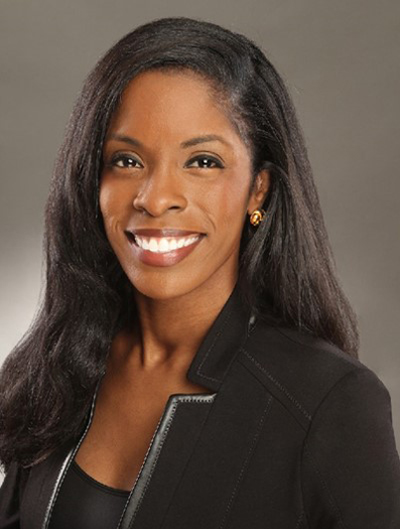Student Spotlight: Evan Doomes

Sexual violence prevention is such an important mission to me because I have been able to see firsthand the way safe environments improve the quality of relationships within a group. One of the most important experiences during my time at Tulane has been my involvement in Alpha Kappa Psi, a professional business fraternity. We have five core values as a brotherhood – Brotherhood, Knowledge, Integrity, Service, and Unity. When making decisions as a fraternity, we always try to keep these five values in mind. While our brothers have always embodied these values, my sophomore year I began to notice some holes in our policies and procedures that left members vulnerable to acts of sexual violence. Brothers protect brothers, and if even one person feels unsafe within our brotherhood, then we’ve failed to show integrity, brotherhood, or unity.
Our organization has always been one to lead the way on a number of issues, and sexual violence prevention was no exception. As soon as myself and a few other concerned brothers spoke up about the lack of sexual violence prevention efforts within our chapter, within a semester we had developed policies for removing members who are accused of sexual violence, we banned sexual relations between brothers and pledges because of unethical power dynamics, made sexual violence prevention training mandatory to remain in good standing, and developed a relationship with the Title IX office that we continue to grow today.
Through work with our executive board and the Title IX office, we were able to create rules within our organization that protect everyone, and the result has been incredible. Over the past two years, I have watched our already strong bonds grow even stronger through the knowledge that every member now has that not only do we care about their well-being, we have done the actual work to make sure we protect them not just retroactively, but proactively. From professional networking to social events, brothers can now feel comfortable that any space created by our organization is a safe one, which makes everyone thrive. I encourage leaders in every student organization to take the necessary steps to prevent sexual violence, because not only is it the right thing to do, it also makes members more engaged, active, and excited to be a part of an organization. AKPsi is my family, and I’ve always wanted the best for the people I call my brothers. The work we’ve accomplished over the last couple of years has made us an even closer family, and I can’t wait to see how AKPsi continues to grow as a safe, inclusive environment for everyone.

Apply for a Student Grant
Students and student organizations can now apply for grants to fund projects, events, initiatives, and internships related to sexual violence. Applications are reviewed on a monthly basis during the fall and spring semesters.
Learn More and Apply
Faculty Spotlight: Ashley Weir

So what do you do for a living? This question always makes me pause. My job is assessing and treating perpetrators of sexual violence. Sex offenders, stalkers, child sexual abuse image consumers, online solicitors and even human traffickers are my clients. Sometimes this stops the conversation. Sometimes it starts it. My interest in forensics started young and before “forensics” was a thing. I earned my undergraduate degree in Family Studies and Substance Abuse Studies and later my Master’s in Social Work. During my Master’s program I worked at an intern first at Eastern Louisiana Mental Health System and at Dixon Correctional Center. I learned about working with offenders of all kinds and then was invited to sit in on a sex offender treatment group. I was hooked. This was a place I felt I could make a difference. I later volunteered for the Rape Crisis Center, now called STAR, for ten years as an advocate. I have seen both sides of sexual violence and the goal of those who work with perpetrators is the same as those who work in prevention or with survivors: No More Victims. When I came to work at Tulane I began to have the opportunity to lecture to medical students, residents and fellows about sexual violence. I have done this work for 20 years now.
People who commit sex crimes are not all the same. Their motivations and reasons can be very different. It is generally speaking, and not limited to a complex combination of desire for power and control, antisocial attitudes, loneliness, sexual arousal to children or violence, anger, and or hyper sexuality. People can change. However, some people have no intention of changing their behavior. Some are not able due to major mental illness or traumatic brain injury. You have to look at the risks as well as protective factors. Sexual violence is still a severely under reported crime, but it appears in the wake of the #MeToo movement that more survivors are speaking out. There is still much work to be done, but I believe progress is being made.
Ashley Weir, LCSW-BACS is an Assistant Professor at Tulane School of Medicine in the Department of Psychiatry and Behavioral Sciences and serves as the Director of the Forensic Sexual Behavior Program. She specializes in working with perpetrators of sexual violence including sexual assault, stalking, human trafficking and online sexual behavior. Her primary focus in on treatment and assessment of offenders. She also lectures at Tulane and other academic and community settings in hopes of educating others regarding sexual violence.
What We’re Reading
Two recent memoirs, Carmen Maria Machado’s In the Dream House (Graywolf Press, 2019) and Chanel Miller’s Know My Name (Viking, 2019), powerfully illuminate the experiences of survivors of sexual and relationship violence and explore the erasure and silencing that victims of such trauma can face. Machado examines the lack of representation of abuse in same-sex and queer relationships while detailing the abuse she experienced from a girlfriend. Miller uses her experience with the criminal justice process and the national attention on her sexual assault case to shine a light on what she calls “a broken system” that obscured her truth and who she is (p. viii).
Miller has only recently come out as the anonymous victim in the criminal case of Brock Turner, a Stanford university student-athlete accused of sexual assault. In the book’s introduction, Miller writes that she wants to reclaim her identity: “I am not Brock Turner’s victim. I am not his anything. I don’t belong to him. I am also half Chinese. My Chinese name is Zhang Xiao Xia, which translates to Little Summer” (p. viii). Miller shares with us her voice and courage, allowing a detailed look at the woman behind her widely-read victim impact letter. She also chronicles how society and the criminal justice system can dehumanize victims of sexual violence.
Machado’s memoir focuses in on the erasure and exclusion of queer histories. She writes, “What gets left behind? Gaps where people never see themselves or find information about themselves. Holes that make it impossible to give oneself a context. Crevices people fall into. Impenetrable silence” (p. 4-5). Machado notes that she had difficulty identifying as abuse the escalating jealousy, isolation, and possessiveness her partner engaged in because of a lack of representation of queer relationships, including abusive ones. Ultimately she calls for more depictions of both the good and bad of queer relationships, nothing that currently “our culture does not have an investment in helping queer folks understand what their experiences mean” (p 139).
Ultimately Miller and Macho demonstrate the power of their voices and their stories. They shine a light on trauma and the many ways that our culture and society compound that harm. At the same time, they call on us, individually and collectively, to work towards a world where survivors are supported, those who harm are held accountable, and such harm is ultimately prevented from occurring in the first place. Through compelling, intimate writing, both memoirs force us to confront difficult truths while also creating space for survivors to be seen, heard, and understood.
Apply to be a SAPHE member!

SAPHE is a compassionate group of Tulane students who are dedicated to supporting survivors of sexual violence and addressing rape culture at Tulane. The purpose of SAPHE is to provide resources and support to the Tulane community through a peer run 24/7 hotline, while working to dismantle rape culture on campus through workshops, events, and outreach. SAPHE members are trained in trauma informed care and empathetic listening so that they are well equipped to provide support and resources to any person who might need them. To contact SAPHE's 24/7 Peer Run Hotline during the fall and spring semesters, please call 504-654-9543. You can join SAPHE now! The application is open on WaveSync until March 27!
As of today, there are no changes to the events listed below. However, as our response to COVID-19 evolves, events may be adjusted or cancelled. Please check the All In events page at https://allin.tulane.edu/events for up to date information.
Featured Event

Shifting the Narrative: Sexual Violence Prevention and Supporting Students of Color
April 14 | 6:30-8:30 p.m. | Kendall Cram, Lavin-Bernick Center
We invite all members of the campus community to this forum to hear from scholars and practitioners who conduct research, advocate for and work with communities of color to prevent and respond to sexual violence.
Panelists will explore the following:
- Barriers to addressing sexual violence. We understand that different students face different cultural and social norms when it comes to sexuality. In turn this can create barriers to addressing issues related to sexual violence, intimate partner violence, and other forms of violence.
- Actions that communities can take to reduce or eradicate barriers to addressing sexual violence that includes, peers, faculty, staff, families, etc.
- Submit your questions here
Featuring:
Moderator: Samantha Francois, Ph.D., Assistant Professor, Tulane University School of Social Work
Dr. Samantha Francois is an Assistant Professor at Tulane University’s School of Social Work with a specialization in adolescent development and vulnerability and resilience in African American populations. Her research interests include microsystem influences (specifically, neighborhoods and schools) on life-stage outcomes in African American youth, macrosystem influences (specifically, forms of structural, institutional, and systemic oppression) on community violence, and African American cultural assets that promote resilience. More specifically, her work examines the relationships between multi-system risk contributors and protective factors and mental health, educational, and quality of life outcomes for African Americans in urban geographies.
Panelist: Jordan West, Ph.D., Director of Diversity & Inclusion Education, George Washington University
Jordan S. West, pronouns she, her, and hers, is the Inaugural Director of Diversity & Inclusion Education at The George Washington University in the Office for Diversity, Equity and Community Engagement in the Office of the Provost. Jordan’s experience and continued research interests focus on campus climate, narrative and storytelling as a method, and how People of Color and individuals from historically marginalized identities work towards liberation while in higher education through the lens of Black Feminist Theory and Critical Race Theory.
Panelist: Mara Cristina Pacheco Alcala, Project Manager Casa de Esperanza
Mara Cristina Pacheco Alcala is a project manager with the National Latin@ Network for Healthy Families and Communities, a project of Casa de Esperanza. Ms. Alcala is a former director and coordinator of campus program grant initiatives at the Univ. of Puerto Rico Her areas of expertise include gender violence prevention, Title IX and Clery Act, sexual assault, stalking, human trafficking, dating and domestic violence, and grant management. Ms. Alcala has over 15 years of experience working in education and prevention within communities and campuses, with youth, women, law enforcement, and faculty. She has facilitated trainings nationally and has provided technical assistance to minority-serving institutions of higher education to enhance their response to gender-based violence.
Panelist: Dr. Shantoyia (Toy) Jones, PhD, Assistant Professor, Xavier University of Louisiana
Dr. Jones is a Counseling Psychology Assistant Professor. At Xavier University. She completed her doctoral internship at the University of Illinois at Chicago (UIC)-Counseling Center, where she provided psychotherapy to non-traditional diverse university students. While at UIC, she completed a year-long clinical rotation at the Marjorie Kolver Center, an agency that serves survivors of political torture seeking asylum in the states. Just prior to coming to Xavier, she was a postdoctoral fellow-multicultural apprentice and staff clinician at Loyola University Maryland Counseling Center, in Baltimore, Maryland. While working as a staff clinician at Loyola, she served as a member to many campus-community initiatives such as: Take Back the Night, the Racial Justice Working Group, Loyola-SAFE Zone, the Counseling Center's Cultural Alliance Steering Committee, ALANA's Sister to Sister circle, and as the Co-Chair of the Women of Color Retreat.
Panelist: Navila Rashid, Social Worker Consultant, Heart Women & Girls
Navila Rashid is a Bangladeshi-American forensic social worker, freelance educator & trainer, and consultant working with diverse clients. Clients include government agency staff, public defenders, non-profit agencies and community members/leaders. She provides program coordination, technical assistance, and capacity building services around advocacy, social media, digital storytelling, and gender-based violence education. She co-founded “The Cathartist”, a web-based platform for victims and survivors of sexual violence, and activists to showcase their creative works as a tool of coping and healing with trauma. Navila is also featured as a survivor in the award-winning documentary, Breaking Silence, where she addresses the nuances and experiences of being a survivor of sexual violence in a Muslim and South Asian community, and the journey towards healing.
Panelist: Felicia McGinty, Executive Vice Chancellor for Administration and Planning, Rutgers University
Dr. Felicia McGinty leads and directs day-to-day, nonacademic operations of Rutgers University-New Brunswick, including space management, infrastructure development, oversight for policy development, and other critical functions that support the student experience and advance Rutgers University–New Brunswick academic, research and service mission.
Other Upcoming Events
Audre Lorde Days: Creative Healer Makerspace
March 25 | 4:00-7:00 p.m. | The Rathskeller, LBC
Come join this Coalition of Queer & Trans People of Color and Office for Gender and Sexual Diversity sponsored event!
On Being Empowered: Third Annual Women of Color Luncheon
March 26 | 1:00-2:00 p.m. | Diboll Gallery, the Commons
The Office of Multicultural Affairs, Newcomb Institute, The Center for Academic Equity, and The Tulane University Law School invite all students, staff, and faculty who identify as women of color to join us for lunch and dialogue on being empowered.
This year our Keynote speaker will be Meria Joel Carstarphen, Ed.D. (NC '92). Dr. Carstarphen will join us to discuss what it means to be an unapologetic leader in today's society. The 2018 recipient of the Newcomb Alumnae Association Outstanding Alumna Award, Dr. Carstarphen has nearly 20 years of leadership experience in major metropolitan public school districts, including Austin, Texas; Saint Paul, Minnesota; and the District of Columbia. She earned her doctorate from the Harvard Graduate School of Education, master of education degrees from Auburn University and Harvard University, and a bachelor of arts in political science and Spanish from Tulane University. She has also studied at the University of Seville, Spain, and University of Innsbruck, Austria. Dr. Carstarphen began her education career as a middle school teacher in her hometown of Selma, Ala, which honored her in 2015 with the inaugural Phoenix Award associated with the Sullivan and Richie Jean Sherrod Jackson Foundation. She also has worked with elementary-level children in Seville, Spain, and Caracas, Venezuela.
Heathy Relationship Celebration
April 1 | 11:00 a.m.-1:00 p.m. | McAllister Walk
Join SAPHE for a celebration of healthy relationships to kick-off Sexual Assault Awareness Month! Stop by SAPHE’s tables to grab a snack and talk about what you need to feel healthy in your relationships.
Fridays at Newcomb: Women in Higher Ed
April 3 | 12:00- 1:00 p.m. | Diboll Gallery, the Commons

Deondra Rose is Newcomb Institute's 2020 Salzer Lecturer; the annual Salzer Lecture focuses on women's experience in higher education.
Rose is an Assistant Professor at Duke University’s Sanford School of Public Policy. Her research focuses on the feedback effects of landmark social policies on the American political landscape. In addition to U.S. public/social policy, Rose's research and teaching interests include higher education policy, American political development (APD), political behavior, identity politics (e.g., gender, race, and socioeconomic status), and inequality.
She is the author of Citizens by Degree: Higher Education Policy and the Changing Gender Dynamics of American Citizenship (Oxford University Press, 2018), which examines the development of landmark U.S. higher education policies--including the National Defense Education Act of 1958, the Higher Education Act of 1965, and Title IX of the 1972 Education Amendments--and their impact on the progress that women have made since the mid-twentieth century.
“Teal Out Tulane" Game: Tulane Baseball vs. University of Houston
April 4 | 2:00 p.m. | Greer Field at Turchin Stadium
Join the Office of Title IX, Campus Health, and Tulane Athletics to observe Sexual Assault Awareness Month while cheering on the Green Wave baseball team. Wear teal to show your support for sexual violence prevention and help us to Teal Out Tulane for SAAM! All students receive complimentary admission with a valid Tulane Splash Card, while seats are available.
